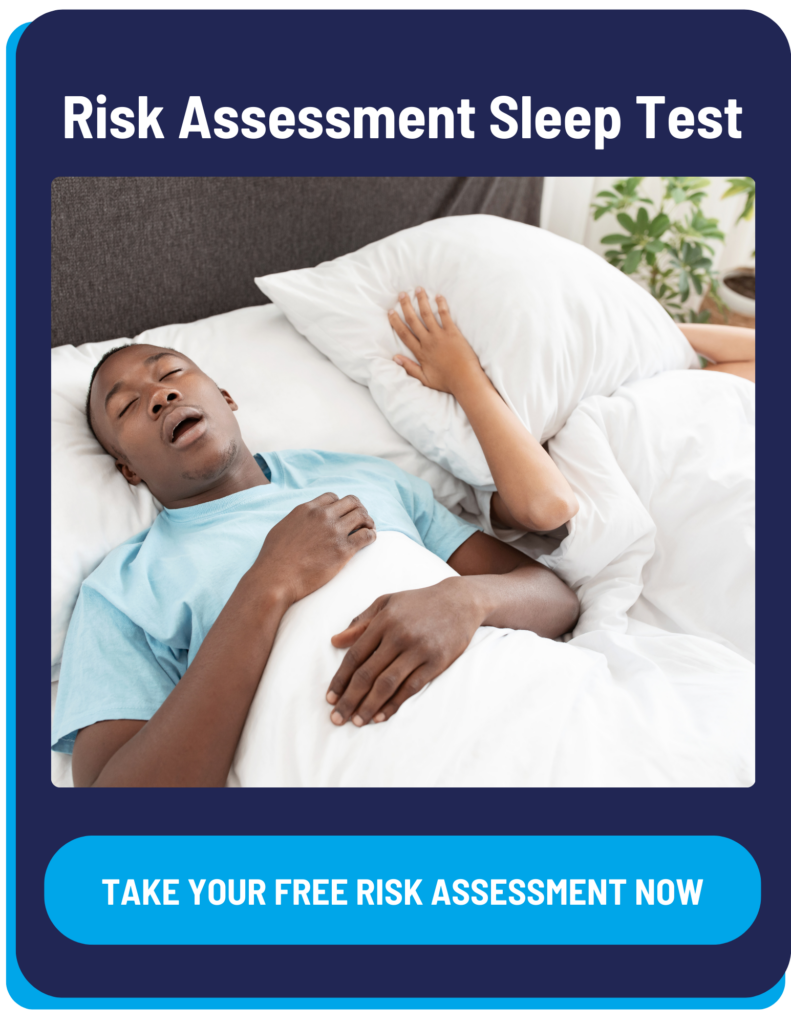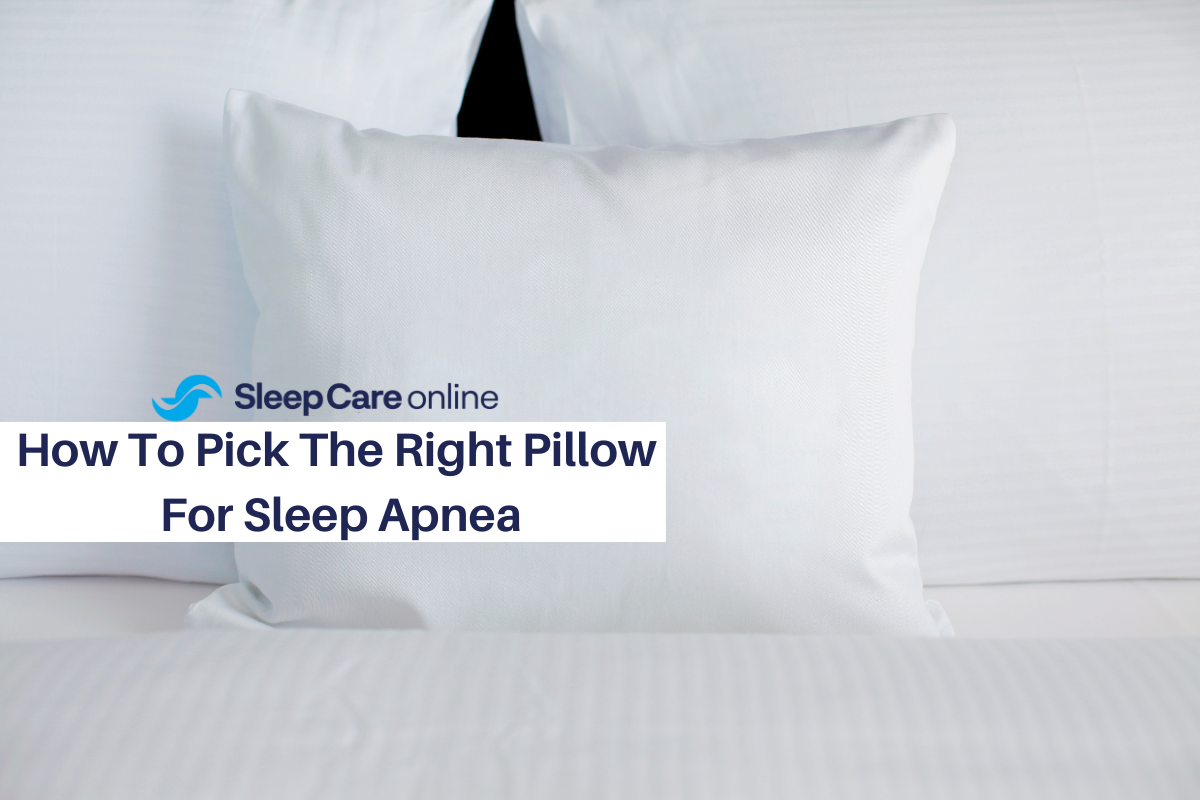
Snoring is a common occurrence. It is believed to affect up to 57% of US men and 40% of US women.1 Some people snore infrequently, and it does not affect their daily life. For others, it could be a sign of a serious health problem. So why do we snore, and what does it mean when we do?
Why Do We Snore?
Snoring can be caused by several factors which include the anatomy of the mouth, the sinuses, allergies, colds, weight, and even alcohol consumption.
When you doze off from a night of light sleep to a night of deep sleep, the soft palate or the muscles in the roof of your mouth, tongue, and throat relax automatically. The tissue relaxation in the throat blocks the airway leading to a constant vibration during every breath.
Here are some of the common factors that cause airway blockage and snoring:
Why Do We Snore – Mouth Anatomy
Having a thick or low soft palate can lead to a narrow airway constantly. This is a common occurrence in people who are overweight. Obese people have extra tissues in the back of their throat that narrow the airway leading to vibrations. Moreover, the Uvula connected to the soft palate also elongates itself leading to more obstruction and increased vibration for louder snoring.
Why Do We Snore – Head and Neck Anatomy
Fatty tissue around the neck can be a contributing factor to chronic snoring. The thicker the neck tissue, the more pressure is placed on the airway during normal respiration. With increased pressure comes to a strain on the flow of air during breathing while you sleep, especially in a reclined position when even greater pressure is placed on the airway. Often obese individuals suffer from excessive snoring because of the buildup of fatty tissue around the neck area.
Why Do We Snore – Sleeping Position
Sleeping position can also affect snoring. Sleeping on your back puts pressure on the airway which can cause snoring, especially if your mouth falls open while you sleep. Elevating the head slightly while you sleep may help reduce snoring. Sleeping on your side or stomach can reduce the pressure and may help to alleviate snoring. Some individuals may use a body pillow to ensure that they remain in a side-sleeping position. Although a sleeping position can be helpful, it may not eliminate snoring.
Why Do We Snore – Nasal Problems
Chronic nasal congestion is a common disorder that leads to snoring in many people. Moreover, other problems like a deviated nasal septum can also contribute to serious snoring problems.
Why Do We Snore – Sleep Deprivation
Not getting enough sleep can lead to serious relaxation of the throat muscles leading to loud snoring. Sleep-deprived people tend to have an issue with snoring which can also lead to sleep apnea.
Why Do We Snore – Sleep Position
Snoring is most prominent when sleeping on your back. Gravity plays an important role in pulling down the soft palate to narrow the pathway.
Why Do We Snore – Alcohol And Sedative Medication Use
Alcohol and sedative medicines make the muscles relax which in turn can cause snoring. So, people who suffer from sleep apnea and drink alcohol before bed may experience severe snoring. Many physicians recommend avoiding any type of sedatives and alcohol before going to bed to avoid snoring.
Why Do We Snore – Smoking
Smoking is another factor related to snoring. There is no exact reason why people who smoke are more prone to snoring but research shows that it may be because smokers are more likely to have upper airway inflammation and edema. Results have shown that after smokers quit smoking their snoring gradually abates.
Why Do We Snore – Overweight
Being overweight is another factor contributing to snoring because increased tissue mass around the neck causes the airway size to decrease and increases the chances of collapse in the airways.
Why Do We Snore – Aging
With age, sleep patterns and cycles also change and may cause snoring. The tongue and muscles near the airways become weaker with age. Doing myofunctional therapy, that is mouth and throat exercises, may reduce muscle weakness and reduce snoring.
Why Do We Snore – Hypothyroidism
Hypothyroidism is a medical condition that causes the thyroid gland to under-function and to stop producing enough thyroid hormone. This condition may also cause snoring.
How to Stop Storing While Sleeping
To reduce or stop snoring, you may try some of these easy fixes.
How to Stop Snoring – Weight Loss
If you are carrying some excess weight, particularly around the neck, those fatty tissue buildups can put pressure on your throat muscles while lying down. Healthier habits such as daily movement, reducing food intake and moderate resistance training may help you lose weight and eliminate your snoring.
How to Stop Snoring – Avoid consuming alcohol at bedtime
A nightcap may help you get to sleep at first but ends up interfering with healthy sleep patterns later in the night. Alcohol relaxes the throat muscles and may contribute to increased snoring. Limit drinks to several hours before bedtime and see if your snoring goes away.
How to Stop Snoring – Nasal decongestants
Your airway blockage may be due to chronic nasal congestion. Decongestants may help reduce the blockage for a quieter sleep. Consult a doctor to see if nasal decongestants can work for you.
How to Stop Snoring – Sleep Position to Stop Snoring
This sleeping position, also known as the supine position, can cause the throat muscles to relax and block your airway. Try side or stomach sleeping positions and see if your snoring subsides.
How to Stop Snoring – Avoid Consuming Alcohol at Bedtime
A nightcap may help you get to sleep at first but ends up interfering with healthy sleep patterns later in the night. Alcohol relaxes the throat muscles and may contribute to increased snoring. Limit drinks to several hours before bedtime and see if your snoring goes away.
How to Stop Snoring – Nasal Decongestants
Your airway blockage may be due to chronic nasal congestion. Decongestants may help reduce the blockage for a quieter sleep. Consult a doctor to see if nasal decongestants can work for you.
How to Stop Snoring – Sleep Position to Stop Snoring
This sleeping position, also known as the supine position, can cause the throat muscles to relax and block your airway. Try side or stomach sleeping positions and see if your snoring subsides.
How to Stop Snoring – Avoid Heavy Meals Before Going to Bed
Late-night eating promotes snoring because the process of digestion also relaxes the throat and tongue muscles. If you must eat, avoid high-fat dairy products, such as ice cream, before sleeping. Milk products can keep mucus from draining properly. Try to limit eating to at least two hours before bed to give your digestive system time to process your dinner. Also avoiding spicy foods before bedtime is helpful as they can trigger indigestion which can lead to snoring.
How to Stop Snoring – Consider Using Anti-Snoring Devices
Anti-snoring devices can also be helpful for effectively reducing snoring. Snorers often find relief using mouthpieces designed to keep airways open while asleep. These devices, also called mouthguards, fall into two general categories. Mandibular advancement devices, or MADs, fit inside the mouth and push the lower jaw forward to open up your airway. Tongue-retaining devices (TRDs) grip the tongue and prevent it from falling into the back of the throat, which commonly causes snoring for back sleepers.
How to Stop Snoring – Maintain Air Moisture in Your Bedroom
Often chronic snoring can be caused by excessively dry air in the bedroom. Keeping the bedroom air slightly damp can help reduce snoring. Snorers may try humidifiers to help add moisture to the bedroom air, which may also improve sleep in general. If the snoring is caused by nasal congestion or dry throat, then humidifiers may be a solution. Dry air can aggravate the tissues of your nose and throat, causing irritation and inflammation that can worsen snoring.
How to Stop Snoring – Sleep on Your Side
Changing your sleeping position is one of the easiest ways to help stop snoring. Sleeping on your back allows gravity to cause the airway to fall closed which can cause snoring. Try to change your sleeping position to either your side or your stomach. Side sleeping is often the best as it helps keep the airway open without having to sleep facedown. Using a body pillow can help some sleepers stay in a side sleeping position all night to help stop snoring.
How to Stop Snoring – Quit Smoking
One of the long-term solutions to snoring is to quit smoking. Smoking cigarettes aggravate the nasal and throat tissues which can lead to snoring at night. This disruption of your upper airway, especially your nasal passage and throat, may have other consequences. It may cause increased airway congestion. The turbulent airflow may lead to vibration as air moves through, leading to the unpleasant sound of snoring. This risk seems to be increased among smokers, and even those who previously smoked.
How to Stop Snoring – Exercise Regularly
Since snoring and sleep apnea are caused by loose and floppy airway muscles and poor tongue positioning, exercises are beneficial. Throat and mouth exercises help tone up the tongue and airway muscles and help promote breathing through the nose. You can compare it to going to the gym regularly. Just like lifting weights helps tone your arms, regular mouth and throat exercises help strengthen muscles related to breathing. When the muscles are toned, you should experience less snoring and fewer sleep apnea episodes.
What if the Snoring Doesn’t Stop?
If you have tried the above methods and find your snoring persists, it may be a symptom of obstructive sleep apnea. While snoring doesn’t necessarily mean you have sleep apnea, it is one of the most common symptoms.
If you experience any of these other symptoms you may need to ask your doctor about sleep apnea.
- Gasping for breath in the middle of the night
- Chronic headaches, mood swings, lack of concentration
- Excessive daytime fatigue
Why Should You Remedy Your Snoring?
You may think snoring is harmless, but if it is a symptom of sleep apnea it can have serious health consequences. Untreated obstructive sleep apnea has been linked to heart disease, high blood pressure, stroke, and type 2 diabetes. Your snoring may be a sign that it is time to get tested.
Treatment For Snoring
Some of the major effective treatments for snoring include:
Oral Appliances
Several oral appliances like dental mouthpieces can help fix the position of your jaw, soft palate, and tongue to keep the air passage open during sleep.
Oral appliances are prescribed by dental specialists who can optimize the fit and position of the appliance to ensure that it works as intended.
CPAP (Continuous Positive Air Pressure) Therapy
CPAP involves wearing a mask over your mouth and nose. The mask directs pressurized air from a pump into the airway to keep it open during sleep.
CPAP eliminates the chances of snoring and is often the best treatment for Sleep Apnea.
Upper Airway Surgery
Upper Airway Surgery or Uvulopalatopharyngoplasty (UPPP) is an operation where the doctor trims the tissues and muscles in the soft palate to ensure that it is tight and does not relax during sleep to block the airway.
Other processes like Maxillomandibular Advancement (MMA) and Hypoglossal are new and advanced operation processes that can provide the same functions as UPPP.
Getting Tested for Sleep Apnea
Receiving an accurate diagnosis is the first step to sleep apnea treatment. You can find out by taking a home sleep test from Sleep Care Online.
How Does a Home Sleep Apnea Test Work?
To receive your home sleep test, purchase the Complete Care Package from Sleep Care Online. Here’s how it works:
- With the Complete Care Package, schedule a 10-minute telehealth visit with a healthcare provider to discuss your symptoms, upcoming sleep study, test results, and treatment options.
- A disposable home sleep apnea test is mailed to your home to be completed at your convenience.
- A physician analyzes the sleep data and provides a prescription if needed.
- Schedule an optional follow-up appointment (additional fee applies).
- We connect you to sleep experts who can offer customized sleep therapy options, assistance in equipment purchase, and initial set-up.
Get Started Today
If you have any questions about the NightOwl device or the Sleep Care Online process, our customer care team is standing by! Feel free to give us a call at 866-465-4478 or email us at contact@sleepcareonline.com.
Reference:
- Schwab, Richard J. MD. Merck Manual. Snoring. Updated Aug 2020. Accessed Sept 16 2020.




